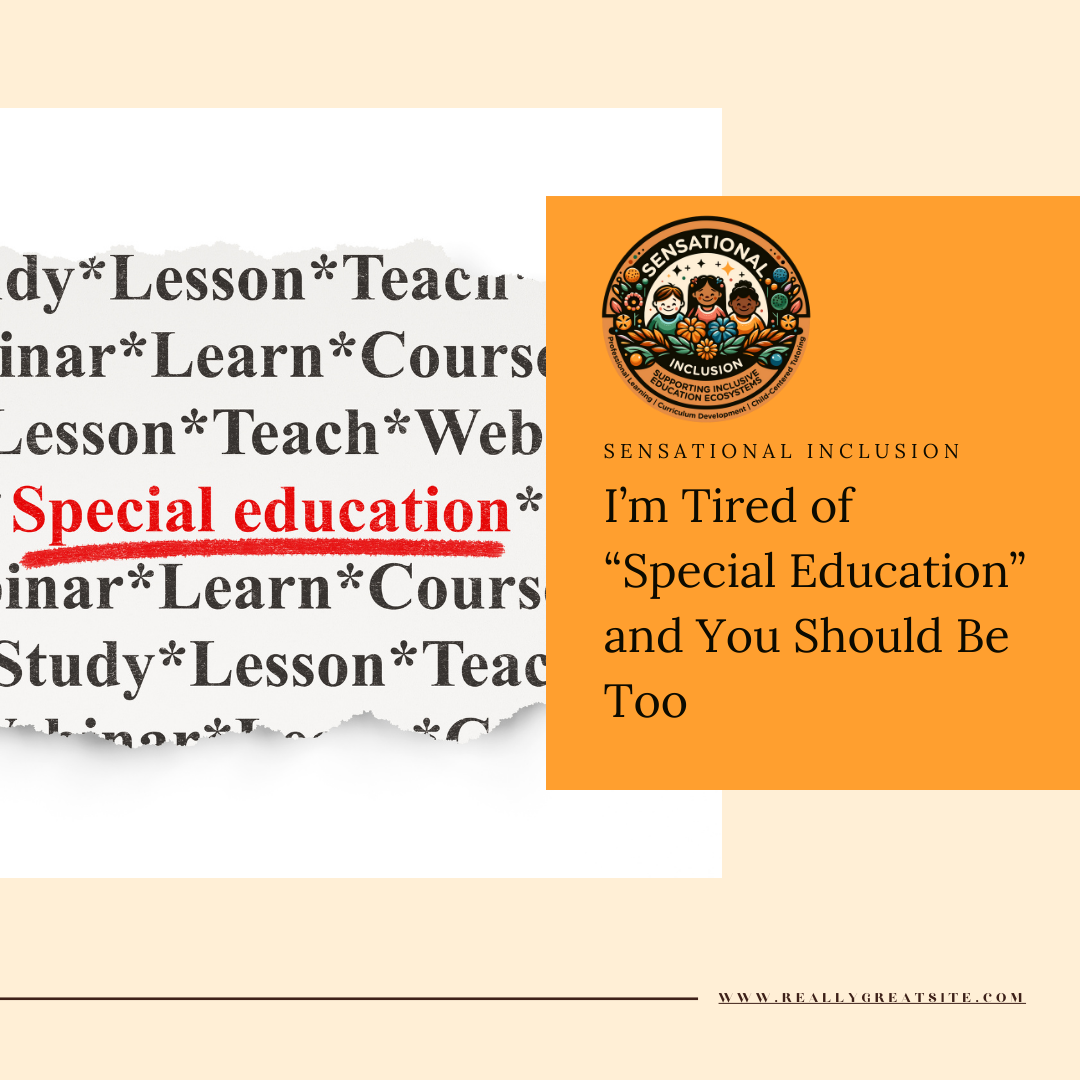Are we really content living in a world that slaps the label ‘special’ on basic human needs? Don’t trip over yourself when you read this, BUT THERE’S ABSOLUTELY NOTHING SPECIAL ABOUT SPECIAL EDUCATION. This term is a misnomer, a veil that obscures a more profound issue, and I’m here to break it all the way down for you.
However, it’s essential to clarify that advocating for such an environment for all does not mean overlooking or diluting the specific needs of neurotypical children. This is not about homogenizing educational experiences under the guise of inclusion. Neurotypical children, like their neurodivergent peers, have distinct educational needs that may not require the same level of support or environmental adaptations as those typically found in special education classrooms.
The crux of the argument lies in reimagining the standard of education to be inherently flexible and responsive to the diversity of learning styles and needs. It’s about dismantling the binary of ‘general’ and ‘special’ education and embracing a more fluid, continuum-based approach. In such a system, the resources and strategies currently labeled as ‘special’ become available to all, allowing for a truly individualized educational experience. Thus, my aim in this discourse is to idealize an educational landscape where the ‘special’ is normalized, and the norm is inherently special in its capacity to cater to each child’s unique educational journey.
Next, let’s tackle this notion of ‘special needs.’ How does this language perpetuate ableism and white supremacy? Yes, you heard that right. By tagging these needs as ‘special,’ we’re upholding a system that inherently values certain abilities over others. There’s nothing ‘special’ about making buildings accessible to all or having teachers who create safe, inclusive spaces. These should be fundamental aspects of our educational fabric, not exceptions that we applaud. To this point, I think we should get rid of “’special education’ and replace it with a term that truly reflects an anti-oppressive, inclusive approach. This isn’t about lowering standards; it’s about raising the floor for everyone. Your child’s needs aren’t ‘special’ – they’re human. And it’s about time our education system recognizes and honors that. What term do I propose? Drum roll..
Inclusive Educational Empowerment (IEE) encapsulates a paradigm shift from viewing certain educational needs as ‘special’ to recognizing and valuing the full range of human diversity in learning. It implies an educational system that is inherently designed to empower every student, acknowledging that each individual has unique strengths and needs.
Inclusive Educational Empowerment moves beyond the conventional boundaries of ‘special’ education, advocating for a system where every student’s needs are understood as integral to the educational model, not as exceptions requiring special attention. This approach aligns with the ideals of anti-oppressive education, aiming to elevate everyone to a place of equitable learning and opportunity.
So, I’m calling you to action. Reject the notion of ‘special’ education as some sort of benevolent gift. Demand an education system that acknowledges and caters to every child’s inherent worth and potential. It’s not just about fairness; it’s about justice, equity, and the radical reshaping of our society’s future. Enough with complacency. It’s time for a revolution in how we view and deliver education. Your child, and every child, deserves nothing less. Below are steps to do better:
- Decentralize Standardized Education Models: Move away from one-size-fits-all education models that prioritize standardization over individualization. Embrace a more decentralized approach, focusing on diverse, community-based educational models. This shift can draw inspiration from Paulo Freire’s concept of “problem-posing education,” which emphasizes dialogue, critical thinking, and the co-creation of knowledge, adapting to the unique contexts and needs of each learner.
- Implement Universal Design for Learning (UDL): Shoutout to Dr. Shwartz at St. John Fisher University. He taught me everything I know about UDL! Anyways, UDL is a framework that advocates for creating curriculum and learning environments accessible and effective for all. This approach involves presenting information in multiple ways, offering diverse avenues for students to express their understanding, and providing varied means of engagement to tap into different interests and motivations. UDL challenges the notion that accommodations are ‘special’ needs and instead frames them as universal needs.
- Empower Student Voice and Agency: Actively involve students in decision-making processes regarding their education. This includes creating platforms for students to express their needs and preferences and involving them in designing their learning experiences. Such an approach aligns with the principles of democratic education, which see students as active participants rather than passive recipients in their educational journey.
- Revise Teacher Training and Professional Development: Reform teacher education to focus on equity, inclusivity, and culturally responsive pedagogy. Educators should be trained to recognize and dismantle biases, adapt to diverse learning styles, and create inclusive classrooms that celebrate differences. This training must include ongoing professional development that keeps educators abreast of the latest research and best practices in inclusive education.
- Policy Advocacy and Legal Reform: Advocate for policy changes that prioritize equitable access to education for all students. This involves lobbying for legal reforms that dismantle barriers in the existing educational system and promote funding and resources for inclusive education practices. It’s about shifting the narrative from ‘special’ education as a separate entity to inclusive education as a fundamental right for all.

